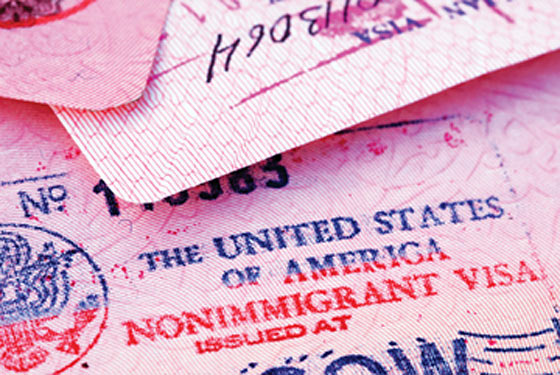
Chances are, the international supermodel you have seen on the runway during New York Fashion Week and the scientist from overseas who has made groundbreaking advances in the American medical field are the recipients of an O-1 or E visa. These visas are issued to the cream of the crop in the fields of entertainment, fashion, athletics, science, medicine, research and business, in addition to a multitude of other innovative fields, so that they may perform their highly sought after services in the United States.
The O-1 non-immigrant working visa (which is temporary) and several classifications of the E-1 immigrant visa (which is long-term and extendable on a permanent basis) are set aside for individuals who have reached the pinnacle of their field. The individual applying for one of these visas must prove not only that they are extraordinarily talented, but also, that they have achieved sustained acclaim.
How does one prove such extraordinary talent and sustained acclaim? The answer is not simple, nor is it the same for every profession. For example, a model should submit a substantial amount of published material—press in high fashion publications, evidence of participation in a prestigious modeling competition and/or other documentation that exhibits a level of success far above most models in the field. Professors, researchers, scientists, writers and other individuals who work in a more academic setting are expected to submit material to confirm authorship of published articles and studies; evidence of works cited by other authors; panel participation and invitations to lecture at distinguished seminars.
Freddi Weintraub is a Senior Partner at Fragomen, one of the largest and most highly respected immigration firms in the country, and as such she has become an expert at garnering favorable adjudications for O-1 and E visas.
If one meets an immigration attorney and is informed that their chances of qualifying for this type of visa are slim, it is important to think about long-term strategies.
Weintraub affectionately refers to this individual case unit as the ICU, because of the more intensive care that needs to be provided. While the corporate client is aided by an in-house immigration department that handles the logistics of their case, an individual applying for a visa based on their talent and acclaim needs the process explained to them. They must rely more heavily on their attorney to navigate them since often they are not aware of the extent of documentation that they need to provide. In order to ensure that every piece of relevant documentation is submitted with the application, a lot of one-on-one interaction and brainstorming needs to take place between the attorney and the client.
Weintraub is eager to provide the extra guidance and support to her clients because the more educated they are about the regulations of the visa, the more likely they are to obtain enough documentation to get the application approved. She discourages any modesty in her clients, and picks their brain in order to discover every single professional achievement, whether it be a gallery exhibition in which a photographer’s work was featured years ago or a magazine that interviewed a fashion stylist for advice on the latest trends.
Although the application process can be extremely arduous, in the end it is worth the effort when a client is granted the opportunity to expand their career horizons and simultaneously fuel American industry.
“Whether it is a physician gaining permission to serve in a medically undeserved area; a university research scientist helping to discover a new treatment; an athlete becoming an integral member of a professional sports team; an investor setting up a new venture; or a talented foreign national serving in countless other industries, these individuals participate in the full spectrum of the New York City economy,” asserts Ethan Kaufman, Senior Partner at Fragomen.
If one meets with an immigration attorney and is informed that their chances of qualifying for this type of visa are slim, it is important to think about long-term strategies. There are ways in which an attorney can guide individuals on how to make their clients more eligible in the future. Weinstein advises clients who are not yet ready to apply to get as involved as possible in their field by participating in panel discussions, volunteering to conduct a lecture, joining distinguished organizations and gaining more media exposure if possible. In other words, prospective applicants should not shy away from the limelight. In addition, they should save everything they have from past clients including thank you notes, articles that cite their work, award certificates, invitations to participate on boards and panels, and anything else that can prove that they have been recognized as an expert in the field.
Kaufman also stresses that it is important to realize that every case is different and that some applications may take longer to prepare than others. Therefore, it is not wise to put much faith in guarantees made by friends or colleagues that since their case took a month to get approved, yours will too.
The O-1 and E visa application processes are typically not very quick or easy, but with a determination and drive to work in the United States and the assistance of a highly respected immigration lawyer who is willing to work with the client and brainstorm together, these visas are absolutely attainable. Furthermore, they can foster enormous growth and development for the individual’s career, as well as for the industry to which they contribute their expertise.
See Also
• How Pro Bono Work Teaches & Gives Back
• Battle Against Big Oil Nets Record Settlement
• How Mediation Saves Money & Anguish
• Bickel & Brewer’s Fellowship to Aid Latino Clients
• The 2009 Lawyers of the Year